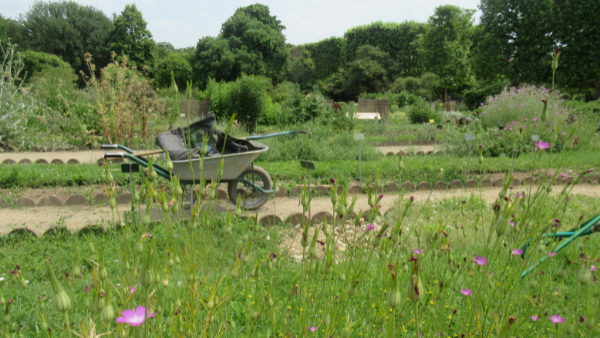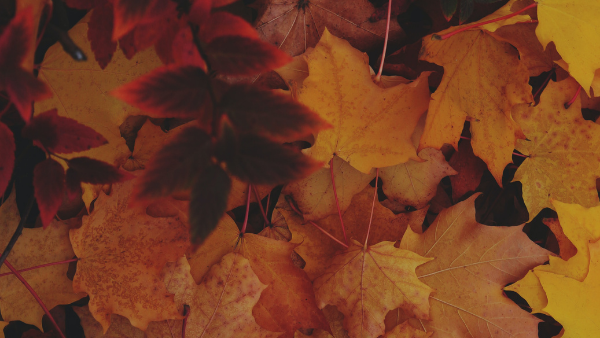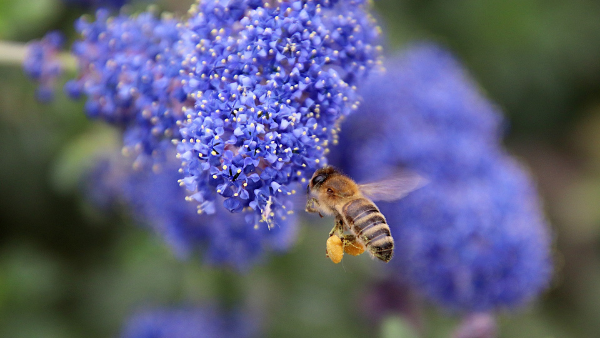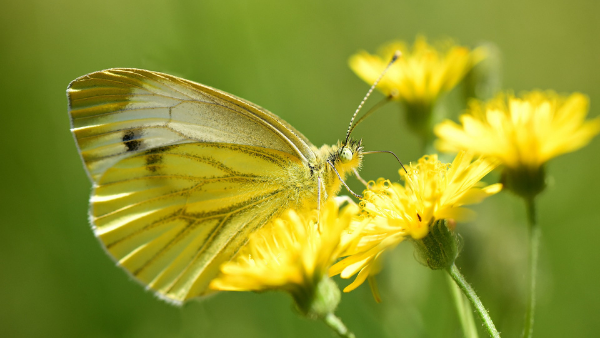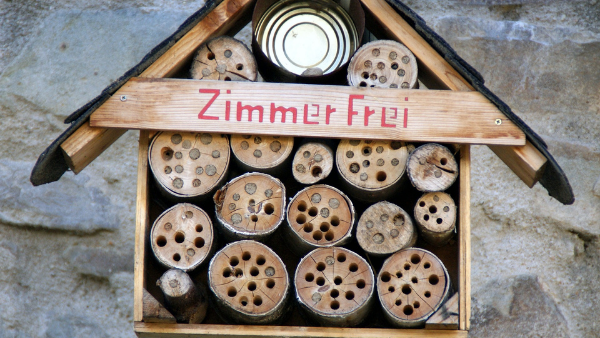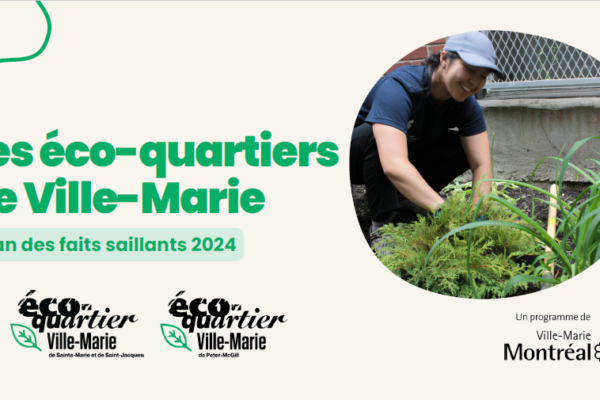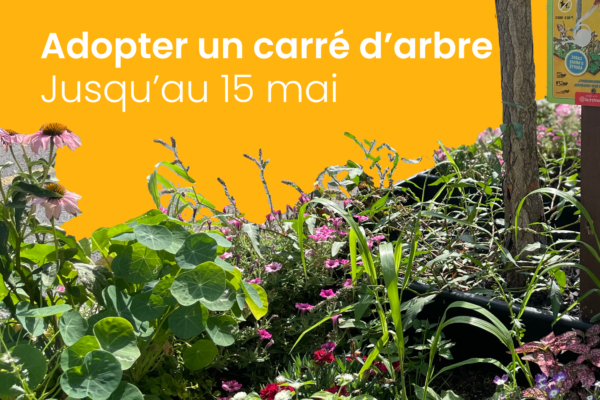Fall is already here and it’s time to help pollinators prepare for the cold season!
First of all, what are pollinators?
They are insects, birds and bats. Bees are the most famous of these animals, and in Quebec alone, there are 800 native species!
Why protect them during winter?
Pollinators live and reproduce in dead leaves during the cold months. It is therefore necessary to adopt protective actions towards them!
For example, avoid using pesticides in your gardens and flower boxes. They threaten our pollinating insects and the ecosystems that depend on them! Diversify your plants and favour those that bloom outside of the summer period, that is to say at the end of winter and in the fall. For example, you can let dandelions bloom in the spring, they are one of the first sources of food after our icy months.
5 ways to help and protect pollinators
1- Let the land go fallow
Wastelands (i.e., untrimmed, unweeded green spaces where plant species coexist) are optimal spaces for pollinators of all kinds to breed. By allowing parts of the land or entire lots to become wasteland, we allow the creation of breeding grounds for pollinators.
2- Do not harvest dead leaves
Many species of insects and small vertebrates use fallen leaves as habitat, food or nesting material during the fall and winter. In particular, many pollinating insects such as some butterflies survive the winter thanks to the cover and warmth of these decaying leaves. It is therefore wise to let the leaves decompose where they fall or to deposit them on your gardens or in a specific area of your property. Leaves are also a natural and simple fertilizer that is part of the normal soil enrichment process.
3- Planting melliferous plants
Honey plants are plants that produce a lot of nectar and pollen. Planting them at home is a good way to incorporate into our environment effective allies of pollinators, as they are rich in nutrients.
4- Let spring and fall weeds bloom
Ideally, weeds that produce flowers should not be pulled out of season. Indeed, these plants that bloom early (like dandelion) or late (like trilobed rudbeckia) play an essential role for pollinators who need these flowers when most of the others are not yet blooming or have finished blooming.
5- Build pocket habitats
Building gardens or insect hotels can be an option for those who do not own land or do not have the opportunity to garden or create/cultivate wastelands. These small facilities are simple to build and can be a partial habitat replacement in mineralized spaces, i.e. the urban environment. Some such gardens can be installed in window or balcony apartment blocks and are therefore an accessible option for high-rise residents.
References:
https://semences.ca/sw8/web/pollinisation
https://www.canada.ca/fr/sante-canada/services/securite-produits-consommation/pesticides-lutte-antiparasitaire/agriculteurs-utilisateurs-commerciaux/protection-insectes-pollinisateurs.html
https://www.ledevoir.com/opinion/chroniques/441148/dans-la-bibliotheque-les-plantes-melliferes-en-ville
https://jourdelaterre.org/qc/blog/2020/04/05/la-protection-des-pollinisateurs-a-la-portee-de-tous/

